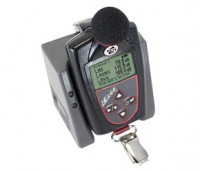Key Findings:
- 73% of government employees use the same password for multiple applications and 72% select passwords that are easy to remember.
- 39% of government workers say security policies restrict the way they work and 32% admit to finding ways to work around security policies. 45% say they are more efficient using apps like DropBox and Gmail.
- 44% use work devices for personal use and 60% use personal devices for work use. 24% of Government workers allow other family to use their work devices.
NASHVILLE, Tenn.--(BUSINESS WIRE)--#BYOD--The balance between data security and employee experience has always been challenging but the pandemic, remote work, and increasing cyber-attacks has taken the importance to a new level for government agencies. According to a new study, 44 percent of government employees use work devices for personal use and 60 percent use personal devices for work use. Government agencies not only have a BYO device issue, but passwords are not properly secured and Shadow IT is out of control.
In its inaugural year, The Endpoint Ecosystem study examines how employees perceive privacy, productivity, and personal well-being in the modern workplace. The study defines the Endpoint Ecosystem as the combination of all the devices, applications and tools plus the employee�s experience using that technology. The study presents a groundbreaking look at the tradeoffs between security and employee experience that every employer must face.
�The Endpoint Ecosystem has always been important, but it became urgent over the last two years when the pandemic forced more people to work remotely, cybersecurity attacks increased, and the Great Resignation forced employers to rethink how they support their employees,� said Denis O�Shea, founder of Mobile Mentor. �When the endpoint ecosystem works well, you have a secure, productive and happy workforce.�
The Endpoint Ecosystem study also highlights the following findings specific to the government workers:
- Government employees have a password problem. Seventy-three percent use the same password for multiple applications. Twenty-one percent of government employees write their work passwords in a personal journal, 11 percent admit to storing their passwords in notes on their phone, and 17 percent keep work passwords in Excel or Word on a PC. Seventy-two percent admit to choosing passwords that are easy to remember.
- Government has a Shadow IT problem. More than 39 percent of employees say security policies restrict the way they work and 32 percent admit to finding ways to work around security policies. Forty-five percent of workers believe they are more efficient using non-work apps like Dropbox and Gmail.
- Government workers are largely aware of the gravity of a data breach and suggests workers are receptive to elevated security training. Fifty-five percent of government workers believe they will get fired for a data breach while 59 percent believe their executives should be fired for a privacy breach. Thirty-one percent know someone who exposed their employer to a data breach.
- Security on BYO devices is a major vulnerability. Sixty-four percent of government workers are using personal laptops and 89 percent are using personal smartphones in a typical work week. However only 25 percent of government employees are enabled to securely access systems, data, and applications on their personal devices.
- The line between work and personal devices is blurred. Forty-four percent of government workers use work devices for personal use, and 60 percent use personal devices for work. Twenty-four percent of government workers allow their family members to use their work devices for personal usage.
In late 2021, Mobile Mentor commissioned CGK to field the study of 1,500 employees across four high-risk and highly regulated industries: healthcare, finance, education and government. Employees were located in the United States and Australia. Each interview consisted of 25 questions to understand how employees are using devices in a post-pandemic world. The goal of the study is to gather data to educate and inform employers how devices in their industries are being used, how to prevent security breaches, and how to best support productive employees.
For the complete report on government workers, visit www.endpointecosystem.com/government.
About Mobile Mentor:
Mobile Mentor secures and supports the mobile workforce. The company helps clients to find the right balance between corporate security and employee experience. Mobile Mentor secures all devices (laptops, tablets and smartphones) and empowers employees to be productive. The company is certified by Microsoft, Apple and Google. Their goal is to help their clients to become a password-less, server-less and paper-less modern enterprise. Founded in 2004, Mobile Mentor is a Microsoft Partner of the Year and Gold Partner with offices in New Zealand, Australia, and in the United States. For more information, please visit www.mobile-mentor.com.
About CGK:
The Center for Generational Kinetics is a research, speaking, and advisory firm dedicated to separating myth from truth through data. CGK has led more than 65 research studies in multiple languages on four continents. Their clients include many of the most recognizable brands in the world as well as private equity firms and market-shaping start-ups. CGK�s team members have been featured in hundreds of media outlets from a cover story in The New York Times to over 200 TV appearances on shows such as 60 Minutes and The Today Show. Adweek called their President a �research guru.�
The content of this study is freely available to the general public. You are welcome to share any singular data point (or small groups of data points) in presentations, podcasts, radio shows, reports, articles, blog posts, etc. Please always mention the source �a national research study conducted by Mobile Mentor.�
Contacts
Beth Tallent
615-429-0483
Beth@TallentPR.com











